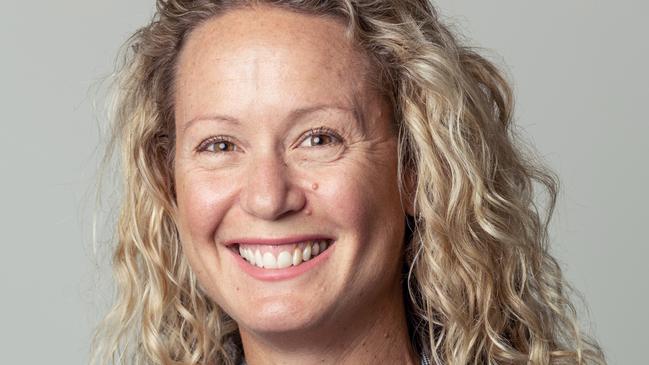Covid vaccines for kids: Most common questions answered
Our expert panel has answered some of the most common questions Australians are asking about vaccinations for kids.
Coronavirus
Don't miss out on the headlines from Coronavirus. Followed categories will be added to My News.
Our panel of experts – Monash University’s Professor Allen Cheng, Infectious diseases physician and member of the Australian Technical Advisory Group on Immunisation, Professor Terry Nolan, paediatrician and clinical epidemiologist at the Doherty Institute and Associate Prof Margie, paediatrician and immunisation expert with the Murdoch Childrens Research Institute (MCRI) – answer your questions on Covid vaccines for children over the age of 12.
Q. What is the latest advice with regards to vaccinating those 12 and over?
“ATAGI now recommends that everyone >12 years should be vaccinated, but noting children are a lower priority than adults because they don’t generally get very sick, and their contribution to spread in the community is a bit lower than young adults,” Dr Cheng said.
“There is good clinical trial evidence that the Pfizer vaccine is safe and produces antibodies against coronavirus likely to provide a high level of protection against serious outcomes,” Prof Nolan said.

Q. Is it safe to vaccinate 12 year olds?
“Yes, but like all medicines there are risks and benefits. The main risks are severe allergy (anaphylaxis) and inflammation of the heart (myocarditis or pericarditis) – both are very rare (see below),” Prof Cheng said.
“Yes. The TGA and its American equivalent, the FDA, have both determined that the vaccine has a favourable profile where the benefits substantially outweigh any health risks,” Prof Nolan said.
Q. Why do we need to vaccinate kids?
“Eventually, everyone will probably get exposed to Covid. Even though complications of Covid are very rare in children, they do occasionally happen and we think that the benefits of vaccination outweigh the small risks,” Prof Cheng said.
“Even though they are at lower risk of serious Covid symptoms than older adults and the elderly, serious illness needing hospitalisation may still occur (and deaths) and vaccination will prevent this. See the US data below. It is also possible that long-term symptoms of Covid (‘Long-Covid’) may occur in susceptible children, and vaccination should prevent this too,” Prof Nolan said.

Q. Are they at risk of Covid and if so, what is the risk?
“There are more children being affected by Covid in recent times – this is likely to reflect both vaccination of older people, as well as the increased infectivity of the delta variant,” Prof Cheng said.
`
“They are taking a very precautionary approach and want further information before making a decision. Worth noting they have recommended it for high risk children (eg those who have compromised immune systems),” Prof Cheng said.
“This is conflicted at the moment give the UK equivalent of ATAGI has come out and said they do not recommend vaccinating healthy teens, so it is a hot topic. But we align with Canada, the US and a lot of Europe in sense there are clear benefits to vaccinating kids,” A/Prof Danchin said.
Q. What about side effects?
“The risk is highest for young teenage boys and young men, the 16-17 year age group. The risk is 70 per million, and 30-70 per million for boys 12 to 24 years of age and in girls it is about eight per million, so a lot lower. The important thing to note, with myocarditis of pericarditis is it is mild. Most teenagers will present with chest pain, shortness of breath or heart palpitations. It usually happens five to seven days after the second dose. They need to go to hospital for some treatment but everyone recovers,” A/Prof Danchin said.

Q. What is pericarditis and myocarditis?
“Pericarditis is inflammation of the outside lining of the heart and myocarditis is inflammation of the heart muscle itself. It is actually not uncommon in the absence of vaccination and can occur due to viral infections – and it is a recognised complication of Covid itself. It is generally mild and most people recover within a few days or weeks,” Prof Cheng said.
Q. Who is at highest risk of those side effect?
“The side effect appears to be most common after the second dose of Pfizer or Moderna vaccine, and is particularly high in young males. It should be noted that even in this group, it still is a rare side effect – if we vaccinated a MCG full of men
Q. What is the risk to benefit?
“We still think that in young men, the risks of Covid are greater than the risks of side effects – myocarditis and pericarditis are well recognised complications of Covid,” Prof Cheng said.
“If you have an underlying medical issues and an adolescent, the benefit is greater but having said that, all three of my teenagers are vaccinated. They are desperate to get back to their lives,” A/Prof Danchin said.
Q. What is the knock on effect of vaccinating the young?
“Vaccinating children will benefit them by preventing severe disease, will help contribute to reducing transmission in the community but probably most importantly will help keep schools open by reducing the risk of cases appearing in schools,” Prof Cheng said.
“There are three main benefits,” A/Prof Danchin said. “One is direct protection, particularly against severe disease but we know it is uncommon, the risk of hospitalisation in children is only around 1 per cent and risk of death is very rare. Then the prevention of the multisystem inflammatory disorder, and long Covid. Second is preventing transmission, kids transmitting to adults and teachers and then the third is by vaccinating them they can go back to school safely and come out of lockdown,” A/Prof Danchin said.
More Coverage
Originally published as Covid vaccines for kids: Most common questions answered




